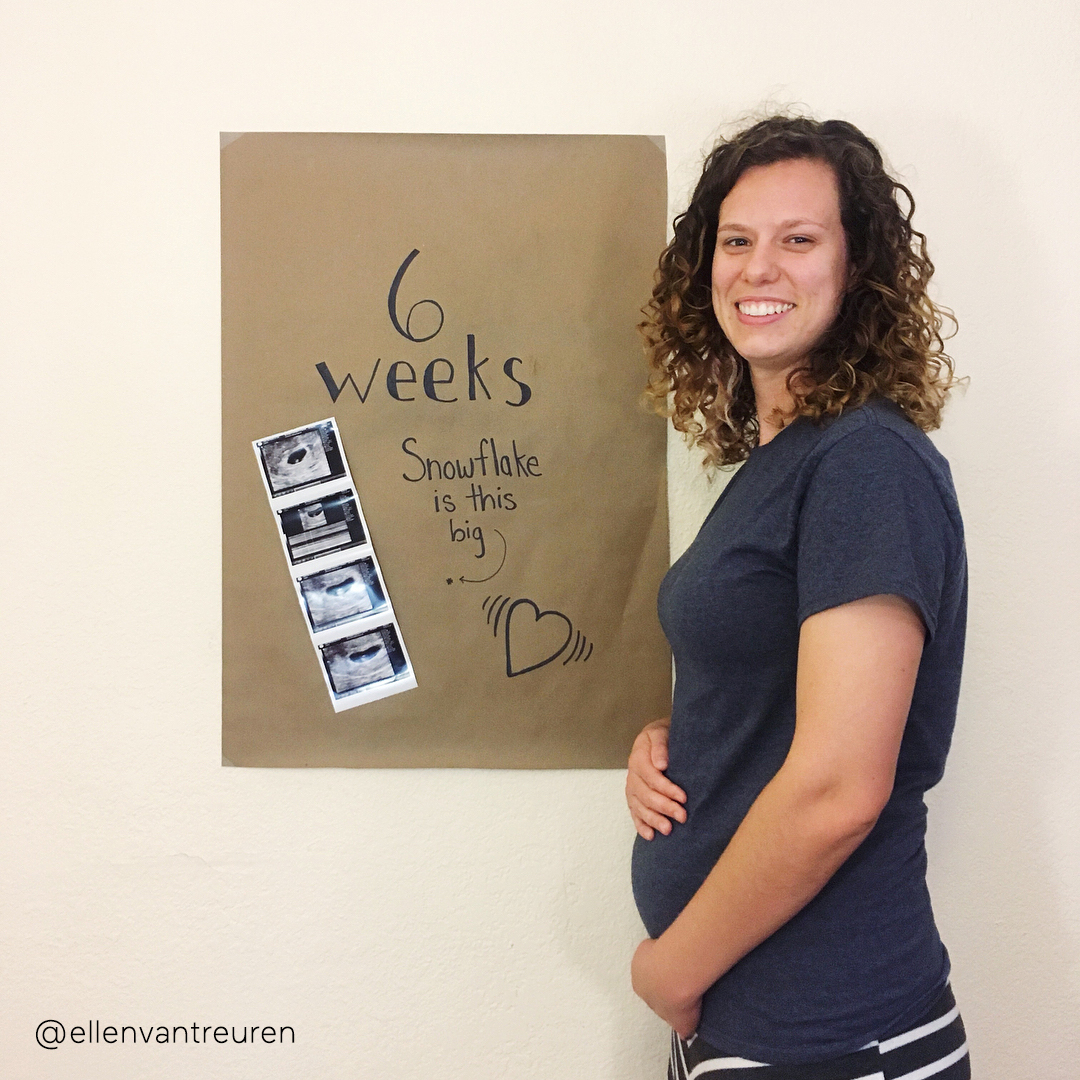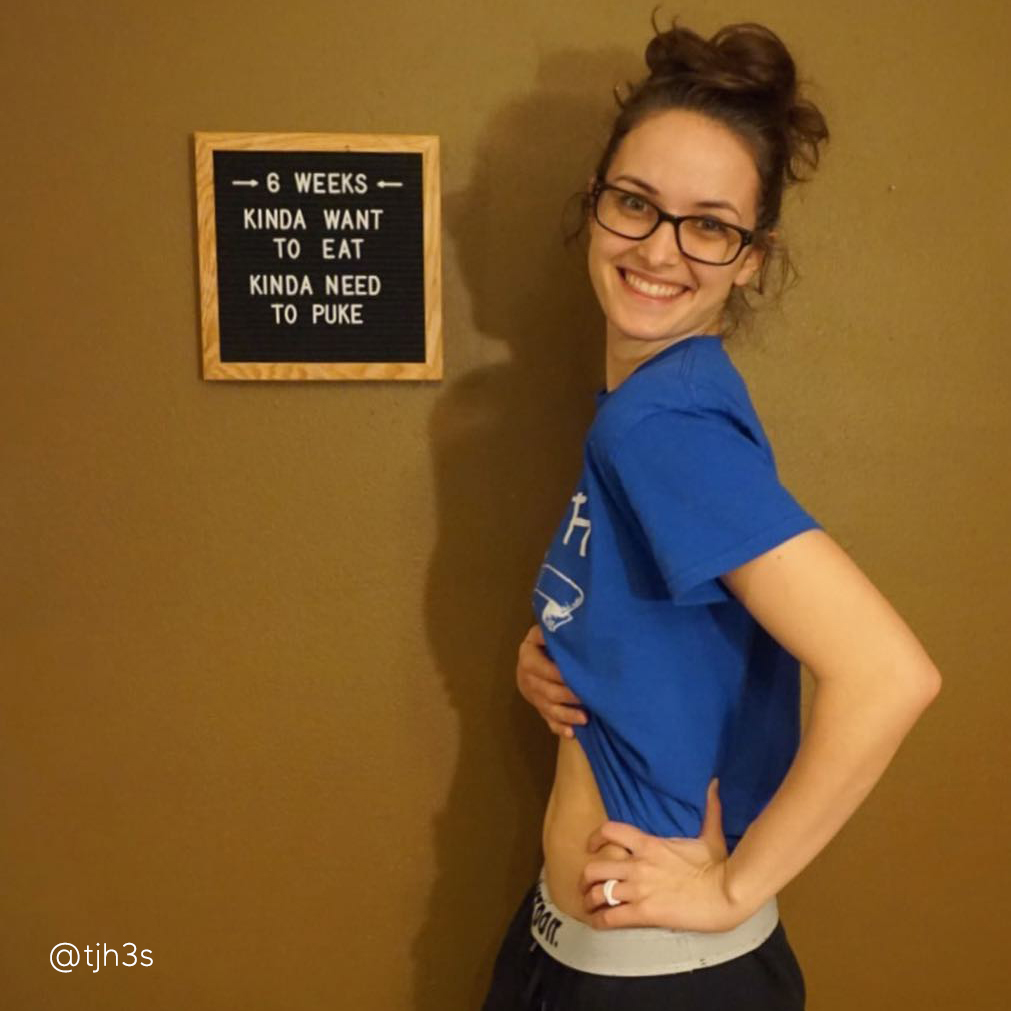why is my belly so big at 6 weeks pregnant
6 Weeks Pregnant: Symptoms & Baby Development
1. What are the common symptoms of being 6 weeks pregnant?
During the 6th week of pregnancy, some common symptoms may include:
- Morning sickness
- Fatigue
- Breast tenderness
- Increased urination
- Food cravings and aversions

2. What is the development of the baby at 6 weeks pregnant?
At 6 weeks pregnant, the baby's development includes:
- The baby's heart begins to beat
- Facial features start to form
- Arm and leg buds appear
- Brain and spinal cord begin to develop
- The baby is about the size of a pea

3. Is it normal to experience morning sickness at 6 weeks pregnant?
Yes, experiencing morning sickness, such as nausea and vomiting, is common during the 6th week of pregnancy. It is believed to be caused by hormonal changes in the body.
Expert advice: It is important to stay hydrated and eat small, frequent meals to help manage morning sickness. Avoiding triggers and getting plenty of rest can also be beneficial.
4. How can I alleviate fatigue at 6 weeks pregnant?
To alleviate fatigue during the 6th week of pregnancy, you can try the following:
- Get plenty of rest and prioritize sleep
- Eat a balanced diet and stay hydrated
- Engage in light physical activity, such as walking or prenatal yoga
- Take short breaks throughout the day to relax and recharge
5. Why are my breasts tender at 6 weeks pregnant?
Breast tenderness is a common symptom at 6 weeks pregnant due to hormonal changes in the body. The breasts may feel swollen, sensitive, or tingly. This is a normal part of pregnancy.
Expert advice: Wearing a supportive bra and avoiding harsh soaps or lotions on the breasts can provide relief from tenderness.
6. What causes increased urination at 6 weeks pregnant?
Increased urination at 6 weeks pregnant is caused by the hormonal changes, specifically the increase in blood volume and pressure on the bladder. The growing uterus also puts pressure on the bladder, leading to more frequent trips to the bathroom.
Expert advice: It is important to drink plenty of water to stay hydrated and empty the bladder fully each time to prevent urinary tract infections.
7. Why do I have food cravings and aversions at 6 weeks pregnant?
Food cravings and aversions during the 6th week of pregnancy are believed to be caused by hormonal changes and increased sensitivity to taste and smell. These cravings and aversions are different for every person and can vary throughout the pregnancy.
Expert advice: It is important to listen to your body and eat a balanced diet. If a particular food aversion is causing difficulty in getting proper nutrition, consult with a healthcare provider for guidance.
8. Can I see the baby's facial features at 6 weeks pregnant?
At 6 weeks pregnant, the baby's facial features are starting to form, but they may not yet be visible on an ultrasound. The facial structures, such as the eyes and mouth, are developing, but they are still in the early stages of formation.
Expert advice: It is important to follow the recommended prenatal care, including regular check-ups and ultrasounds, to monitor the baby's development.
9. How big is the baby at 6 weeks pregnant?
At 6 weeks pregnant, the baby is approximately the size of a pea. It measures about 0.25 inches or 0.64 centimeters in length.
Expert advice: The baby's size will continue to increase as the pregnancy progresses. Regular prenatal check-ups can help monitor the baby's growth and development.

10. What should I eat during the 6th week of pregnancy?
During the 6th week of pregnancy, it is important to eat a balanced diet that includes:
- Fruits and vegetables
- Whole grains
- Lean proteins
- Dairy products
- Healthy fats
Expert advice: Consult with a healthcare provider or a registered dietitian for a personalized meal plan that meets your specific nutritional needs during pregnancy.
11. Can I exercise at 6 weeks pregnant?
Exercising during the 6th week of pregnancy can be beneficial, but it is important to consult with a healthcare provider before starting or continuing an exercise routine. Depending on individual circumstances, some exercises may need to be modified or avoided.
Expert advice: Prenatal exercises such as walking, swimming, and prenatal yoga are generally considered safe. It is important to listen to your body and not overexert yourself.
12. Are there any precautions to take at 6 weeks pregnant?
At 6 weeks pregnant, some precautions to consider include:
- Avoiding alcohol, smoking, and illicit drugs
- Taking prenatal vitamins as recommended
- Limiting caffeine intake
- Avoiding certain medications or consulting with a healthcare provider
Expert advice: Following a healthy lifestyle, managing stress, and attending prenatal appointments can contribute to a healthy pregnancy.
13. Can I travel during the 6th week of pregnancy?
Travel during the 6th week of pregnancy should be discussed with a healthcare provider. In some cases, travel may be safe, while in others, it may be advised to stay closer to home.
Expert advice: Considerations such as the mode of transportation, duration of travel, and the individual's health should be taken into account when making travel plans.
14. When should I start prenatal care if I am 6 weeks pregnant?
If you are 6 weeks pregnant, it is recommended to start prenatal care as soon as possible. Schedule an appointment with a healthcare provider to begin receiving the necessary medical guidance and support throughout your pregnancy.
Expert advice: Early prenatal care helps monitor the baby's development, detect any potential issues, and provide appropriate health recommendations for both the pregnant individual and the baby.
Posting Komentar untuk "why is my belly so big at 6 weeks pregnant"